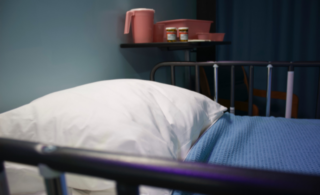
This article explains the different types of breast cancer surgery.
By Dr Tasha Gandamihardja
I need breast cancer surgery, what are my options?
If you have been diagnosed with breast cancer, no doubt you would have been presented with a huge amount of information, leaflets to read and decisions to make. It can be overwhelming and at times perhaps even confusing.
You probably know that breast cancer treatment involves many modalities; surgery, chemotherapy, immunotherapy, radiotherapy and endocrine treatment.
Below I will give an overview of the types of surgeries available, the reasons behind their recommendations and the different factors you may need to consider before going ahead with your surgery.
So broadly speaking, there are two types of breast cancer surgery. The first type is breast conservation surgery (also known as lumpectomy / wide local excision) where only the area of cancer is removed and the rest of the breast is preserved. The second is a mastectomy where the entire breast is removed.
There are certain indications and considerations as to why one type of surgery is recommended over another.
Why have I been recommended to have a lumpectomy or wide local excision?
If the size of your cancer is relatively small, it is likely you will be offered a lumpectomy / wide local excision. If the cancer was detected on a mammogram and is not palpable, then we will localise the cancer using either a wire or magnetic seed to help the surgeon find it at the time of the operation.
If you are generously breasted and have a small cancer, you may be offered what is called a therapeutic mammaplasty. This is still a lumpectomy, but it is done as a breast reduction operation. This operation will result in a smaller and uplifted breast.
The other breast may also have the same reduction surgery to achieve symmetry. This can either be done at the same time as the cancer operation or further down the line once you have completed your cancer treatment. This type of surgery is more invasive compared to a traditional lumpectomy and results in longer and more extensive scars.
The aim of breast conservation surgery is to remove the cancer with a good margin of normal breast tissue surrounding it. Should the cancer be close to the edge of the specimen, then a second operation is needed to remove more breast tissue. This decision however can only be made after the first specimen has been analysed by the pathologist. If you need further surgery, this will be done normally a few weeks after the first one.
As the rest of the breast is preserved, radiotherapy is likely to be recommended to protect the breast from cancer recurrence in the future.
The advantages of having a lumpectomy is of course you keep your breast with intact sensation. The surgery is well tolerated and recovery time is quick.
The possible disadvantages of a lumpectomy include:
1. The need for further surgery should margins be close
2. Radiotherapy will be recommended which involves coming to the hospital every day for a period of time
3. Possible change in breast shape, although with modern surgical techniques this is minimised
Why have I been recommended to have a mastectomy?
The indications for a mastectomy include:
1. Large cancer in comparison to breast size
2. Multifocal breast cancer (i.e. more than one cancer located in different areas of the breast)
3. Inflammatory breast cancer
4. Increased risk e.g. BRCA1 / BRCA2 mutation gene carrier
5. Recurrent cancer
6. Patient choice
When you have a mastectomy (simple mastectomy), the entire breast is removed including the overlying skin of the breast and the nipple areolar complex. This will result in a flat chest and a scar that will extend across the chest wall. You will lose sensation and the chest wall will be numb.
Although the surgery may sound very extensive, the recovery time following a mastectomy is usually relatively quick and the surgery is well tolerated.
The need for radiotherapy is greatly reduced if you have a mastectomy, unlike with breast conservation surgery where radiotherapy will be required.
To achieve symmetry, you can have a prosthesis that you can place in your bra so you can have a shape of a breast when fully clothed.
Some may think that having a mastectomy means that the chances of getting a recurrence is completely removed. Whilst the risk is lower compared to if you had a lumpectomy, a mastectomy does not completely remove that risk, and you can still get a recurrence along the chest wall.
The disadvantages of a simple mastectomy over a lumpectomy include:
1. You lose your breast along with the sensation
2. Recovery time may be slightly longer
3. Some women may develop chronic pain following a mastectomy
4. Asymmetry
If you have been recommended to have a mastectomy, you can also choose to have a reconstruction. You don’t have to go down this path if you don’t want to, but if you do, then there are a few options. You can read my guide to reconstruction here.
For long-term survival, is a mastectomy better than a lumpectomy?
We know that there is no significant survival difference between patients who have a lumpectomy and radiotherapy versus those who have a mastectomy.
There is however a slightly increased risk of local recurrence in those who have a lumpectomy.
What is lymph node surgery?
If your axilla / armpit scan was normal, then at the time of your breast surgery, you will have a few of your lymph nodes removed. This is called a sentinel lymph node biopsy and it is to make sure that the cancer has not started to spread to your glands, despite the normal scan.
If at the time of your diagnosis, you have a gland that was biopsied and tested positive for cancer cells, then it is likely you will have all of your axillary lymph glands removed at the time of your surgery. This is called an axillary nodal clearance.
See our page on lymph node surgery.
FINAL THOUGHTS…
Being told you have breast cancer is life changing. The moment you get that diagnosis, your thoughts are racing, you will experience a wide ranging of emotions and you may feel lost and confused.
It is important to take your time in making any decision regarding your treatment. Don’t be afraid to ask your surgeon any questions you may have. Voice your concerns and worries and do involve your breast care nurse as well.
If you are unsure about what decision to take, try to speak to others who have gone through the same surgical path.
We are here to help you through your cancer treatment. It is important for you to be fully informed so that you are completely satisfied and happy with the decision you make.
About the author
Dr Tasha Gandamihardja is an consultant oncoplastic breast surgeon BSc MBBS MEd PhD FRCS. Tasha shares more helpful information via her website, podcast and YouTube channel.
Further information
Future Dreams hold a range of support groups, classes, workshops and events to help you and your carers during your breast cancer diagnosis. These are held both online and in person at the London-based Future Dreams House. To see what’s on offer and to book your place, see here.
To return to the homepage of our Information Hub, click here where you can access more helpful information, practical advice, personal stories and more.
Reviewed February 2023
The information and content provided in all guest articles is intended for information and educational purposes only and is not intended to substitute for professional medical advice. It is important that all personalised care decisions should be made by your medical team. Please contact your medical team for advice on anything covered in this article and/or in relation to your personal situation. Please note that unless otherwise stated, Future Dreams has no affiliation to the guest author of this article and he/she/they have not been paid to write this article. There may be alternative options/products/information available which we encourage you to research when making decisions about treatment and support. The content of this article was created by Dr Tasha Gandamihardja, an oncoplastic breast surgeon and podcaster and we accept no responsibility for the accuracy or otherwise of the contents of this article.
Share

Support awareness research
Donate to those touched by BREAST cancer
Sylvie and Danielle began Future Dreams with just £100 in 2008. They believed nobody should face breast cancer alone. Their legacy lives on in Future Dreams House. We couldn’t continue to fund support services for those touched by breast cancer, raise awareness of breast cancer and promote early diagnosis and advance research into secondary breast cancer without your help. Please consider partnering with us or making a donation.



